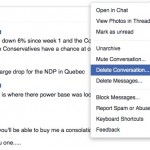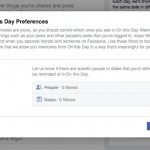Well. Moving on.
0July 2, 2016 by readlisaread
Memory. I am tortured– and blessed– with a memory that provides both perfect and imperfect opportunities. For example, I can remember song lyrics dating back to the original 45’s I listened to as a kid. Yet, I can’t carry a tune with any dependability. I can remember decade’s-old conversations, who was present, what was said, who wore what outfit, yet can’t recall important historical dates or what I went to the grocery store for.
An acquaintance recently expressed irritation with Facebook–what he described as “Mainly Cat videos and fluff”, and asked me to explain social media to him sometime. We never got the chance for the conversation, but I was reflecting on what draws– and repels– people to social media.
First, a loose definition– social media, or the new media, is defined as open source (ie, free to use), unmoderated (although there can be mods on some sites) where the sole purpose is to interact, share, communicate and curate a culture or community. There are particular cultures, too, certainly, and they tend to shift based on the degree of anonymity the participants share. This is where talk of “trolls”, “warriors” and the “dark net” would be appropriate. However, usually when you mention “social media”, especially in my demographic, the thought is immediately of Facebook and Twitter. I interact mainly in these two forums, although I do also participate in discussion on LinkedIn, TripAdvisor, and back in the day, several Craigslist forums. Largely unmoderated and overrun with anonymous trolls and sock-puppets, due to a lax account-creation system, it has lost its appeal in recent years. I tend to use Twitter for education-related topics (my career), and Facebook for socializing.
Facebook, and its appeal were what this acquaintance wanted to understand more deeply. Now, amid the “cat videos and fluff”, the medium lost its appeal for him, and he deleted or deactivated his account before we had this conversation, but something triggered the memory of it today, and Memories is where I will begin.
Humans are social beasts, even the introverts, and a lot of us lead busy lives. Digital communication is fast, it can be unobtrusive (if you turn your notifications off), and requires less of the participants– that is, one can leave a “Hi!” or an image or an emoticon– whoops, showing my demographic there– an emoji, and not expect an immediate reply. Or, in some cases, any reply at all. I enjoy scrolling through my friends’ Facebook feeds looking at their vacation snaps, and now that we are a little more savvy about Internet predation, photos of their children, as well as pets, dinners, flowers… really anything. And, if I don’t want to look or comment, I don’t have to. I am curious about others, and like to share about myself as well (that’s the 88% Myers-Briggs Extrovert at play). Admittedly, I take my former friend’s point about the fluff and cat videos– there is occasionally a dearth of creative content and an awful lot of recycled GIFs, memes and Snopes-rebutted “warnings” that circulate, but that is part of the culture.
Not long ago I was at a conference and the keynote, George Couros, was responding to the comment that “kids today” are too absorbed in their technology, that they are missing life. He challenged the audience, instead, to consider that these kids, these Millenials and their siblings, are in fact documenting their lives, recording big and small events in their daily lives, potentially keeping a digital journal forever.
Which brings me back to the Facebook feature “Memories”. Every few days, the Facebook algorithm will spit out a memory from your past timeline and ask if you wish to re-share it. It is more than just a way to anchor your involvement in Facebook, though– it’s an evilly brilliant bit of coding that taps into a real need in the human psyche- the thirst for nostalgia. It puts me in mind of how many times I read “Go Dog Go” to my kids, how they never tire of hearing the story of their birth, how VHS tapes of Disney movies would wear out from repeated play (one more advantage of digital). Suddenly, everyone can relive those old conversations, remember an event or a moment with the (im)perfect clarity the electronic record of your life can provide.
At least you can control what Facebook holds onto, where I have not yet found a way to better control my own powers of recall. Here are a couple of tips for deleting or managing what is brought to your attention by the Facebook helper bees.
Turn off notifications–Why? Maybe you posted something, but you don’t wish to be notified whenever someone likes or comments on it. You can also turn off notifications for other people’s posts that you have commented on–this is really helpful in the case of a post that is going to get a lot of attention– like birthday greetings or condolences.
Delete conversations–Or just archive them? Back in the day, Facebook did not give you an option to delete whole conversations. You could archive them, which was the equivalent of muting them, or stuffing them in a pillow case in the back of the linen cupboard, but they remained, forever, to remind you of conversations that, perhaps, you might not wish to relive or be reminded of. You know the ones. “Hey I just drank a whole bottle of wine and I’ve been meaning to tell you a secret”. Those ones. You now have the option to “Archive” or “Delete”. Be aware, though, that you can only delete your own record of the conversation. Other participants will still have theirs. This can be a bit of a surprise, especially if you have friends who chose to “go dark” once in awhile. Just yesterday I discovered a friend had resurfaced, but must have simply originally “deactivated” their account, rather than completely deleting it, for when I sent them a message, even though we are not “friends” again (until they choose to send me a friend request) as soon as I accessed the Messages feature, all of our old conversations appeared. Once an account is deactivated or deleted, though, you cannot delete your record of messages, nor access the message feature for that person. Similarly, when an account remains open, even though the original account creator has passed away, it can be disconcerting to see their name appear in your message list or newsfeed.
Manage your Memories–How? Simply navigate to “See your Memories” page. You can’t do a lot about the memories popping up, but it is your choice to re-share them again, if you wish. You can manage the sharing of painful dates, or names you don’t wish to see again.
So, whether you want more reminders or less memories, you are in control of what you see, as long as you manage it. Do, though, remember a couple of things about “free”. When the product is Free, You are the product. In other words, the data you create in your social media accounts is collected, mined, used and stored. Suppose that both my friend and I have deleted our messages to each other, and maybe one or both of us have closed our Facebook accounts, don’t think for a minute that there are not records, on the Facebook server farm, of everything ever posted– from fluffy cat videos to after-the-bottle-of wine conversations. I choose not to worry about this fact– I know our sense of privacy has long since been re-defined. Would I be embarrassed to have some of my past thoughts or comments be re-shared? Sure, perhaps. But that’s the thing– where my own memory is maybe prone to Vaseline on the lens, I know that words on the screen had better, well, say what I mean. It’s my responsibility to mean what I say. If I am embarrassed, then I should install better filters. Yes, gentle reader, I hear you laughing… as if I could suddenly learn to censure my feelings or words…
Category Meanwhile, in other news | Tags:






Leave a Reply